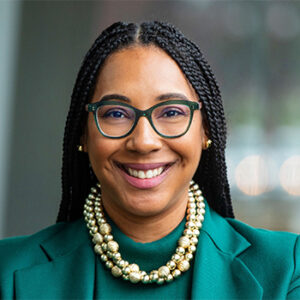Building Financial Confidence and Certainty

April is Financial Literacy Month, and two recent reports illustrate why financial literacy and access to guaranteed lifetime income is so important.
The Alliance for Lifetime Income (ALI) noted that between 2024 and 2030, 30.4 million Americans will turn age 65. This cohort, deemed the Peak Boomers, is the largest and final group of the Baby Boomer generation.
The median retirement savings for all Peak Boomers is $225,000. But it’s $269,000 for men and only $185,000 for women.
Echoing that study, a recent survey from the National Council on Aging and Women’s Institute for a Secure Retirement revealed that less than half of women at least 25-years-old have saved for retirement. Not surprisingly, 56% of women reported they are not financially secure.
How to help people become more comfortable and confident about their financial security is an ongoing challenge. Building confidence and awareness about money matters takes time according to many financial professionals, including Alex Coyne from Pensacola, Fla.
“So, the biggest thing that I think happens in our conversations is people feel insecure due to lack of knowledge, and most of the time we realize that people don’t know what’s out there and available to them from a products and services standpoint,” Coyne said during a recent visit to Washington D.C. with members of the National Association of Insurance and Financial Advisors (NAIFA). “So, the first portion of the conversation is simply hearing about what they’re trying to accomplish financially. No two conversations are the same in that space. And then the second thing is educating them on what products and services, either through us through other products and services that are out in the industry or through their workplace are available to them to help them achieve those financial goals.”
Another proven way to achieve financial confidence and certainty is by learning about the guaranteed lifetime income that comes from annuities. Studies show that people with a protected lifetime income stream are generally more secure financially. Financial professional Ellen Tillman of Bethesda, Md. knows this first-hand.
“My grandmother lived to 103. My dad’s 95. People are concerned about running out of money, and this way we have a chunk of money that’s not going to run out,” said Tillman during the recent NAIFA visit. “It will last at least as long as you do. And I have some clients where we set it up and (it) starts paying out a few years later. (They say) ‘I just love seeing that money in my bank account, and I know that’s going to keep coming in.’”
As the recent studies illustrate, not enough people feel confident about their financial future. But there are also surefire ways to achieve financial certainty. It’s essential that public policy is aligned to support financial education including access to annuities and information about options for guaranteed income in retirement.





